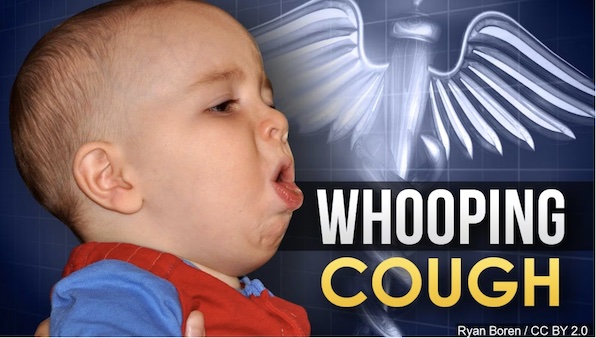Pertussis, Whooping Cough Cases Increasing Across Kentucky
FRANKFORT, Ky. (July 17, 2024) – Today, state health officials alert Kentuckians that pertussis, also known as whooping cough, is increasing across the commonwealth. To date in 2024, Kentucky health officials have identified 130 cases of pertussis. Current case numbers indicate that the state is experiencing an elevated rate of infection not seen in Kentucky since 2016-2017 when 463 and 449 cases were reported, respectively.
“Anyone can get pertussis, though infants are at greatest risk for life-threatening illness,” said Dr. Steven Stack, commissioner of the Kentucky Department for Public Health (KDPH). “Fortunately, vaccinations are available to help prevent serious disease.”
In Lawrence County, things are calm so far according to health dept. director Debbie Miller.
“There have not been any pertussis cases identified in Lawrence County although there have been cases in neighboring counties,” LC Health Dept. director Debbie Miller. “I encourage everyone to ensure that they are up to date on their routine vaccinations according to the schedule issued in the health alert.”
Please contact the health department to schedule an appointment or if you have any questions.
Whooping cough is a very contagious respiratory illness. Symptoms of whooping cough can vary for people based on their age and vaccination status, but typically begin with a runny or congested nose and mild coughing. After 1-2 weeks, the cough can progress to rapid, violent coughing fits that can cause the “whooping” sound, vomiting and labored breathing. Babies younger than one year old are at greatest risk of getting whooping cough and having severe complications from it. People with pre-existing health conditions that may be worsened by whooping cough are at high risk for developing a severe infection.
This year in Kentucky, at least eight cases have resulted in hospitalization – four infants, one school-aged child and three adults – and there have been no known deaths at this time. The majority of identified cases have occurred in school-aged children. Additional cases have been identified in infants/toddlers and adults.
Whooping cough spreads easily from person to person through the air. People can spread the bacteria from the start of symptoms and for at least two weeks after coughing begins. Some people have mild symptoms and don’t know they have whooping cough, but they can still spread the bacteria to others. Many babies who get whooping cough are infected by older siblings, parents, or caregivers who don’t know they have it.
If you have been exposed to anyone with whooping cough or if you are having any whooping cough symptoms, go to your nearest clinic.
The pertussis immunization is combined with the tetanus and diphtheria vaccines (DTaP and Tdap) and is required for Kentucky school children. Data from the 2023-2024 Kentucky school immunization survey indicate that only 91% of kindergarteners and 85% of seventh graders are up to date on their required pertussis immunizations. Health officials encourage that everyone remain up to date with pertussis immunizations. This includes:
- All pregnant women should be immunized with every pregnancy to protect their babies.
- Infants should be immunized when they are two months, four months, six months, and 12-15 months old.
- Children should be immunized before starting kindergarten.
- Teens should be immunized when 11-12 years old.
- Teens and adults should be immunized at least every 10 years or sooner if an injury occurs, or to protect a newborn.
For more information please visit the KDPH pertussis website or contact your local health department.
###
Information on how the state is working to improve the lives and health of our people is available at CHFS.ky.gov. Follow the cabinet on Facebook, X, Instagram and LinkedIn.
















